The problem with a concept like Content is King is it over simplifies how search engines (Google) works. It’s like saying you can make cake with an egg and nothing else!
If true it would suggest great content will rise to the top of Google just because it’s great content: no need for any of the other SEO factors, remember in 2018 Google uses hundreds of SEO ranking factors.
You can easily find SEO and marketing articles using the phrase Content is King to mean (or at least suggest) the most important Google ranking factor is content. Of course content is very important for gaining organic search engine traffic, but on it’s own it won’t count for very much, just like in chess the King is useless without the Queen etc… Chess is a good analogy, without moving the King a good player could still dominate a game of chess, but would be far harder to win if a player couldn’t move the Queen and half the Pawns were missing.
Creating brilliant content won’t by itself generate masses of organic search engine traffic, but it will help.
Take this article, I’m not only going to explain why Content is King is an SEO Myth, but I’m also going to teach the reader (you) some valuable SEO techniques: I hope you’ll consider this great content and will link to it from your blog or share it on social media.
I’m also going to look at a few of the top 10 webpages ranked in Google for the phrase “Content is King” to see if they are indeed great content.
Content is King Google SERP
You can see in the screenshot above the webpage https://www.silkstream.net/blog/2014/07/content-is-king-bill-gates-1996.html is currently (February 5th 2018) ranked number 1 in Google. If it’s ranked high just because of the content you would expect it to be awesome content.
The article is titled “Content is King – Bill Gates, 1996” and references a Bill Gates essay from 1996 which used to be on the Microsoft website. It takes little quotes from the Bill Gates article and builds an argument around them that content is important in marketing: nothing wrong with this approach, I found myself nodding along as I read it (I agreed with most of it), but I don’t think it’s great content. Do you?
As I create this content (text and images) I’m search engine optimising as I go along, I’m not leaving it to chance.
I’m targeting SERPs related to “SEO Myths”, “SEO Content” and the main phrase “Content is King”, I’ll also try to link to other related content on the site like linking to other SEO Myths. I’ll use those and related phrases within the text and as part of image file names, image alt text, anchor text of links etc… This is basic onsite SEO copyrighting and the trick is to optimise the content without ruining it: don’t go SPAMMY.
If you are relatively new to SEO the above paragraph introduces several important SEO concepts.
1. Use the phrases you want to rank for within the content: it’s obvious if you want a webpage to rank for the phrase “SEO Content”, use the phrase “SEO Content” in the content, but many content creators don’t do this!
2. Use the target phrases in image-file-names.jpg, separating keywords with hyphens i.e. google-serp-for-content-is-king.jpg: Google parses this file to “google serp for content is king” which includes a targeted phrase.
3. Use phrases within image alt text, for example alt=”Google SERP for Content is King” is the alt text for the image above which includes a targeted phrase.
4. Link to related content: this article is about an SEO Myth, one of the earlier links is to another SEO Myth and the anchor text is SEO Myth: SEO copyrighting isn’t rocket science, most of it is very easy to understand and perform.
As you can see content search engine optimisation (SEO copyrighting) isn’t a simple case of create great content and hope for the best. Google isn’t a subjective person, it can’t easily judge what great content is so relies on other clues in the content it analyses, the quality of the domain the content is on and of course backlinks.
How Important is SEO Copyrighting?
Many highly ranked webpages are ranked high despite a lack of onsite optimisation. Google uses hundreds of SEO ranking factors which means there isn’t one single overriding SEO factor to rank high, it’s a combination of dozens of important SEO factors and many more minor factors.
5+ years ago just having masses of backlinks with keyword rich anchor text was enough to dominate a SERP. The Computer SERP used to be a great example, one of the top 10 in Google didn’t even use the word Computer(s) in the content and ranked high due to it’s backlinks using the keywords Computer(s) in the links anchor text.
With so many Google ranking factors (hundreds) there’s no longer one or two factors (like backlinks with keyword rich anchor text) to drive a specific webpages rankings. Even so you can still show with simple SEO tests the power of using keyword rich anchor text and keyword rich alt text of linked images. The ‘old’ SEO factors are still important, but their SEO value has decreased as Google added more ranking factors.
Let’s have a look at another webpage ranked top 10 in Google for the Content is King SERP.
Why Content is King or is it?
Ranked number 2 in Google for the content is King SERP is the webpage https://www.forbes.com/sites/steveolenski/2017/06/21/why-content-will-always-always-king/. This is a really good example of relatively low quality content (it’s not awful, but it’s far from great content) ranking high because of the main domains authority: it’s on the Forbes website.
The first thing to notice is the title tag of the article “Why Content Will Always Always King”, what on Earth is that meant to mean? Clearly the author has made a mistake and either hasn’t noticed he wrote “Always Always” instead of “Always BE” (“Why Content Will Always Be King”) or hasn’t bothered to fix the title tag!
This is a fluff article, doesn’t provide anything useful, but can generate organic traffic due to the domains authority it’s on (it’s had over 5,000 views in ~7 months). Look at the quality of this example paragraph:
“Could you imagine what Facebook, Twitter, LinkedIn, and Snapchat would be if they didn’t have content? There would be blank spaces that no one would visit, because they have no need to.”
Well Duh! Imagine what trains would be like if no one used trains, the trains would be empty, seriously!
This is simply padding the article with keywords that could generate traffic: specifically the list of social media networks “Facebook, Twitter, LinkedIn, and Snapchat”. It’s a low level SEO SPAM technique to cram in extra long-tail keyword phrases to potentially rank for: it can work, my article could benefit from the above text.
The author uses this technique multiple times:
“social media, thought leadership, sales, real-time marketing, customer service, and recruit teams…”
Not sure what a “recruit team” is, guess he meant recruitment teams.
“Digital advertising such as takeovers, banners, videos…”
This webpage ranks primarily because it’s on the Forbes website, the webpage itself is poorly written and poorly optimised, but gets a huge ranking boost as Forbes is a trustworthy source of content, it has authority.
The Forbes article even gets a highlighted box (Google Featured Snippet) if you search Google for Why Content Will Always Be King suggesting you search for “Why Content is King”.
I’m afraid the quality of content per se has little relationship to actual Google rankings, good quality content tends to rank better than low quality, but there’s no hard rule.
- High quality content does NOT equal high Google rankings.
- Low quality content does NOT equal poor Google rankings.
Google uses so many ranking factors in 2018 no one factor is king, not many years ago you could make a strong argument for backlinks and anchor text are king, but today no one SEO factor alone will gain a SERP. Pretty much means the best SEO advice is try to get as many SEO ranking factors right so your content has the best chance possible of ranking high in Google.
Best thing about great content is other webmasters are more likely to link to it (backlinks are a ranking factor) and visitors generally might share it on social media: if lucky a good bit of content can go viral generating a lot of social media traffic and some of those visitors might link to your content on their website.
David Law

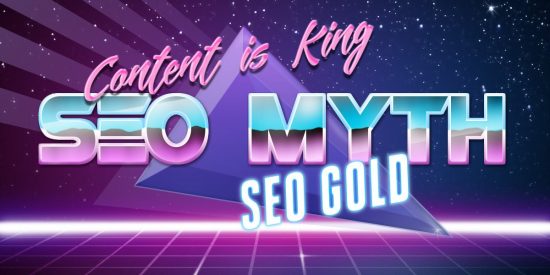
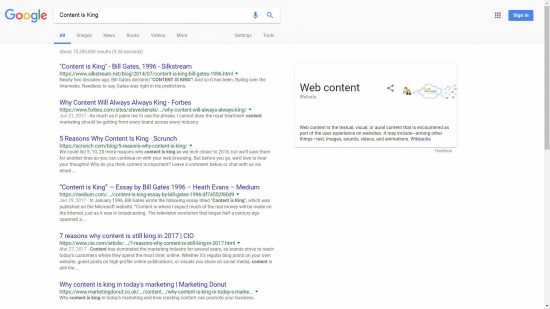
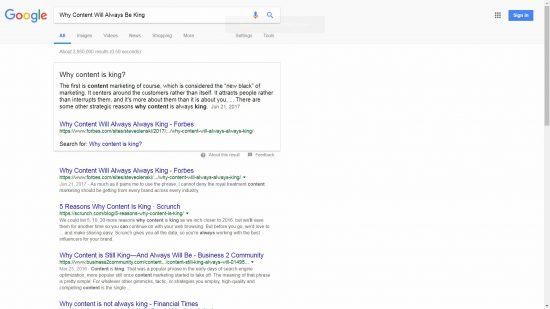


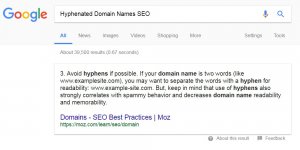


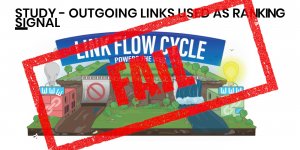

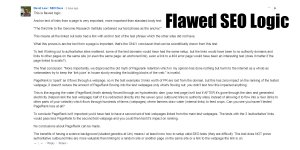


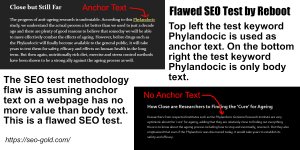

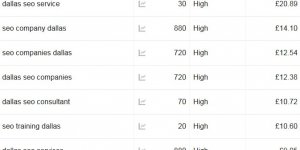
Content is King by Bill Gates : 1/3/1996
Content is where I expect much of the real money will be made on the Internet, just as it was in broadcasting.
The television revolution that began half a century ago spawned a number of industries, including the manufacturing of TV sets, but the long-term winners were those who used the medium to deliver information and entertainment.
When it comes to an interactive network such as the Internet, the definition of “content” becomes very wide. For example, computer software is a form of content-an extremely important one, and the one that for Microsoft will remain by far the most important.
But the broad opportunities for most companies involve supplying information or entertainment. No company is too small to participate.
One of the exciting things about the Internet is that anyone with a PC and a modem can publish whatever content they can create. In a sense, the Internet is the multimedia equivalent of the photocopier. It allows material to be duplicated at low cost, no matter the size of the audience.
The Internet also allows information to be distributed worldwide at basically zero marginal cost to the publisher. Opportunities are remarkable, and many companies are laying plans to create content for the Internet.
For example, the television network NBC and Microsoft recently agreed to enter the interactive news business together. Our companies will jointly own a cable news network, MSNBC, and an interactive news service on the Internet. NBC will maintain editorial control over the joint venture.
I expect societies will see intense competition-and ample failure as well as success-in all categories of popular content-not just software and news, but also games, entertainment, sports programming, directories, classified advertising, and on-line communities devoted to major interests.
Printed magazines have readerships that share common interests. It’s easy to imagine these communities being served by electronic online editions.
But to be successful online, a magazine can’t just take what it has in print and move it to the electronic realm. There isn’t enough depth or interactivity in print content to overcome the drawbacks of the online medium.
If people are to be expected to put up with turning on a computer to read a screen, they must be rewarded with deep and extremely up-to-date information that they can explore at will. They need to have audio, and possibly video. They need an opportunity for personal involvement that goes far beyond that offered through the letters-to-the-editor pages of print magazines.
A question on many minds is how often the same company that serves an interest group in print will succeed in serving it online. Even the very future of certain printed magazines is called into question by the Internet.
For example, the Internet is already revolutionizing the exchange of specialized scientific information. Printed scientific journals tend to have small circulations, making them high-priced. University libraries are a big part of the market. It’s been an awkward, slow, expensive way to distribute information to a specialized audience, but there hasn’t been an alternative.
Now some researchers are beginning to use the Internet to publish scientific findings. The practice challenges the future of some venerable printed journals.
Over time, the breadth of information on the Internet will be enormous, which will make it compelling. Although the gold rush atmosphere today is primarily confined to the United States, I expect it to sweep the world as communications costs come down and a critical mass of localized content becomes available in different countries.
For the Internet to thrive, content providers must be paid for their work. The long-term prospects are good, but I expect a lot of disappointment in the short-term as content companies struggle to make money through advertising or subscriptions. It isn’t working yet, and it may not for some time.
So far, at least, most of the money and effort put into interactive publishing is little more than a labor of love, or an effort to help promote products sold in the non-electronic world. Often these efforts are based on the belief that over time someone will figure out how to get revenue.
In the long run, advertising is promising. An advantage of interactive advertising is that an initial message needs only to attract attention rather than convey much information. A user can click on the ad to get additional information-and an advertiser can measure whether people are doing so.
But today the amount of subscription revenue or advertising revenue realized on the Internet is near zero-maybe $20 million or $30 million in total. Advertisers are always a little reluctant about a new medium, and the Internet is certainly new and different.
Some reluctance on the part of advertisers may be justified, because many Internet users are less-than-thrilled about seeing advertising. One reason is that many advertisers use big images that take a long time to download across a telephone dial-up connection. A magazine ad takes up space too, but a reader can flip a printed page rapidly.
As connections to the Internet get faster, the annoyance of waiting for an advertisement to load will diminish and then disappear. But that’s a few years off.
Some content companies are experimenting with subscriptions, often with the lure of some free content. It’s tricky, though, because as soon as an electronic community charges a subscription, the number of people who visit the site drops dramatically, reducing the value proposition to advertisers.
A major reason paying for content doesn’t work very well yet is that it’s not practical to charge small amounts. The cost and hassle of electronic transactions makes it impractical to charge less than a fairly high subscription rate.
But within a year the mechanisms will be in place that allow content providers to charge just a cent or a few cents for information. If you decide to visit a page that costs a nickel, you won’t be writing a check or getting a bill in the mail for a nickel. You’ll just click on what you want, knowing you’ll be charged a nickel on an aggregated basis.
This technology will liberate publishers to charge small amounts of money, in the hope of attracting wide audiences.
Those who succeed will propel the Internet forward as a marketplace of ideas, experiences, and products-a marketplace of content.
Bill Gates